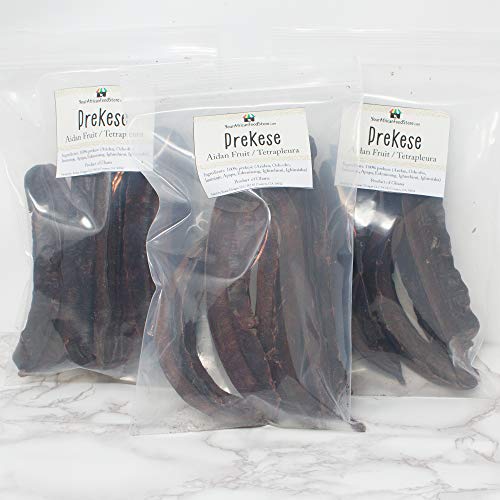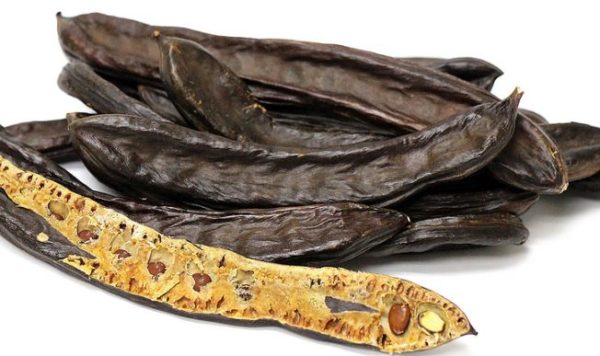8 Benefits of Prekese
This post may contain affiliate links which means I may receive a commission for purchases made through links at no extra cost to you. I only recommend products I truly believe in. Thank you for your support!

The plant pods and fruit are both edible and provide a variety of health benefits. Prekese contains zinc and iron, which are good for fighting respiratory infections. It also contains calcium and potassium, which are good for bone strengthening. It also contains tannins and glycosides, which help prevent bacterial growth. You can use the plant’s pods and fruit to flavor dishes and add a pleasant, aromatic fragrance.
Aidan fruit
Aidan fruit has several benefits for your health. These include being an excellent source of antioxidants, which fight free radicals and oxidative damage. It is also an effective way to prevent high blood pressure. This fruit is a common staple in West Africa, but its benefits extend beyond the culinary realm.
Aidan fruit is rich in calcium, potassium, magnesium, terpenoids, flavonoids, and phytochemicals. It is also used as a spice, and its powder can be used in cooking. Its bark and stem are used as natural antimicrobials and as a natural remedy for hypertension.
Aidan fruit is used to treat many different illnesses. Some of these include diabetes, and it is useful in treating blood parasites. It also helps lower blood sugar levels. It is also useful for treating asthma. The fruit is also used as a natural remedy for uterine fibroids among the Yorubas.
Prekese fruit
The Prekese fruit has many medicinal benefits. This indigenous fruit from West Africa is high in antioxidants, minerals, and other nutrients. It is also a good source of protein. It is used in traditional African medicines and as a food spice. The fruit is known to have a pungent odor and is a good source of fiber and phosphorus.
The Prekese fruit is a rich source of sugars. It is often used as a flavoring for traditional West African soups. It can also be grated and added to drinks and dishes. It is also used in medicine and as a natural perfume for locally-made products.
Prekese can be used to treat several conditions, including Type 2 diabetes. Researchers have shown that the fruit’s extract can lower blood sugar levels. It has also been used to treat high blood pressure and relax nerves. It has a strong smell, which serves as an effective mosquito repellent.
Prekese tea
Prekese tea contains several essential nutrients, including calcium, zinc, and iron. It also contains antioxidants and has anti-inflammatory properties. Its leaves, stem, and pods are edible and can be added to food during preparation. Prekese is also an excellent food flavoring and is rich in calcium and iron.
Traditional medicines use the stem and leaves of the Prekese plant to treat convulsions. Aqueous extract from this plant has been scientifically tested and proven to have anticonvulsant activity. However, it is recommended to use low concentrations to achieve the best effects. This plant extract has also been used in folk medicine to treat leprosy, a disease affecting the skin, mucous membranes, nerves, and muscle tissue.
Prekese is also popular as a spice in soups and other dishes. Its sweet flavor makes it an excellent flavoring in soups and other dishes. Prekese is often grated and added to food before being cooked. It is also used in medicines and as a perfume in local products.
Anticonvulsant
The herbal extract of Prekese is used to treat several health issues, including gastrointestinal disorders such as diarrhea and vomiting. It also has antibacterial properties. The presence of tannins and glycosides in the extract help to prevent bacterial growth. This herb is also used to treat inflammation in the body, which is associated with arthritis.
The prekese plant has been used in African traditional medicine for centuries. It can be extracted by boiling, crushing, and squeezing, and incorporating it into herbal concoctions. It can also be ground into a fine powder and mixed with other ingredients such as palm kernel oil and shea butter. Its flowers have also been used as a perfume, and are said to act as a natural mosquito repellent.
The plant is an antibacterial and antimicrobial agent that has been used for centuries for wound healing. It can treat bacterial and cutaneous infections. The plant’s extract is also used to make soap. It also has anticonvulsant properties and can be a natural contraceptive.
Prekese is a tropical flowering plant native to West Africa. It grows up to 25 meters tall and contains a sweet, fragrant fruit. It is usually used as a cooking spice but also has a medicinal value. It is also known as the Aidan fruit or oshosho. It grows in rainforests and secondary forests in Africa. It can also be found in savanna woodlands and on African plains.
Antibacterial
Prekese is a plant native to West Africa and is widely used for its medicinal and antioxidant properties. The leaves and pods of the plant are used in soups, stews, and baked goods. The plant is used in traditional medicine, catering for postpartum care, and insect repellent.
The plant is a powerful anti-inflammatory. Its bark and stem are used as a skin cream and are also used to treat various types of infections. It also helps fight rheumatoid arthritis and arthritic conditions. These properties of the plant are also very useful in treating bacterial infections.
The prekese plant is used in the treatment of leprosy, a disease that affects the skin, mucous membranes, and nerves. It has strong anti-inflammatory properties, which help control the symptoms of leprosy. It also helps control convulsions. The extract of the plant’s stem is also used in herbal concoctions. In addition, the dried powdered extract is used in soaps.
Prekese is a plant that is native to West Tropical Africa. It grows up to 25 meters tall, and is praised for its anti-inflammatory properties. Prekese is also a good source of minerals and vitamins. Its zinc content is excellent for protecting against respiratory tract infections, while potassium and calcium strengthen the bones and muscles. In addition, the plant contains tannins, which help protect against bacteria growth.
The seeds and pods of prekese are rich in calcium and protein. Prekese is a popular culinary spice in West Africa. It can be used for a variety of applications, including treating diabetes and inflammatory conditions. It can be blended into a tea or used in cooking to add flavor to food.
Prekese plant pods
Prekese plant pods are used as a cooking spice and are packed with many beneficial properties. They have an aromatic smell and a sweet, spicy taste. They’re native to West Tropical Africa. They’re also a great source of anti-inflammatory properties. You can add them to your food, add some to your tea, and use them as a natural insect repellent.
The prekese plant is a good source of protein, iron, magnesium, zinc, and calcium, and is a rich source of antioxidants and anti-inflammatory agents. The pods can be used in a variety of recipes, such as soups and stews. You can also blend them and add them to your food during cooking. In addition to its use as a food flavoring, prekese plant pods can be used in herbal medicines and homeopathic remedies.
Prekese plant pods are also used for a variety of purposes, including the treatment of diabetes. Fruit extracts have been shown to lower glucose levels in people with Type 2 diabetes. It can also help treat high blood pressure and relax nerves, allowing blood to flow freely through the body. Another benefit of prekese plant is that it contains essential oils that repel mosquitoes.
Prekese can help with postpartum contractions
Prekese is a plant with medicinal benefits for both postpartum mothers and their newborns. It has antimicrobial and antibacterial properties. Its pods are used in soups and can improve the blood and milk production of nursing mothers. The plant’s aqueous extract is also believed to have wound-healing properties. Prekese is also a good source of calcium, iron, and potassium. New mothers should drink prekese soup to prevent postpartum contractions and promote the production of milk.
The fruit of Prekese has anti-inflammatory, antiviral, and wound-healing properties. Traditionally, Prekese was used for wound healing. More recently, scientific studies have proven the effectiveness of its aqueous extract. It is also believed to have anticonvulsant and central nervous system effects. It is also used to treat skin conditions and inflammation.
Prekese is a well-known medicinal plant in Africa. It is commonly consumed by nursing mothers to help prevent postpartum contractions. It is also used as a food flavoring and as a natural multivitamin. It is rich in protein, lipids, potassium, iron, and magnesium. In addition, prekese is also used to prevent hypertension and asthma. It grows throughout West Africa. Its native range is in the rainforests and savannah woodlands.
Prekese can help with diabetes
Prekese is a native plant of West Africa that is loaded with nutrients, antioxidants, and medicinal properties. It is used in traditional medicine and as an insect repellent. It is also used in cooking and as a tea. The pods can be added to soups, stews, and baked goods. This plant contains a high concentration of sugar, flavonoids, and tannins.
The fruit extract from the prekese plant has been shown to lower glucose levels in people with Type 2 diabetes. It is also effective for high blood pressure. Prekese helps to relax the nerves and improve the flow of blood throughout the body. It also has a pleasant smell that is often used as a cooking spice.
Prekese comes from a small plant that grows in West Africa. It belongs to the family of Fabaceae. It is used in traditional medicine for skin ailments and bacterial infections. The plant’s aqueous extract has anti-inflammatory and anticonvulsant properties. In addition, it helps to improve the condition of the digestive tract.
Prekese can improve heart health
The prekese plant contains phytochemicals that are good for heart health. Some of these compounds are known to have anti-inflammatory and antibacterial properties. It is also useful in treating a variety of skin problems, including acne and rashes. Its extract is also used to make soap, as it has anti-bacterial and anti-inflammatory properties.
Prekese is native to West Africa and is commonly used as a traditional medicine by many Ghanaians. It can be eaten as a leafy vegetable and is often made into a soup. It is also given to postpartum mothers to reduce the incidence of abdominal contractions. It is high in iron, calcium and potassium, and has the ability to control glucose levels in diabetic patients.
The dried prekese leaves can be used to make a drink that will improve heart health. It has an aromatic fragrance and can be ground into small pieces. These can then be added to hot water to make a tea. The tea can be drunk every morning and night for about two weeks.
Prekese can treat rheumatoid arthritis
Prekese is an herb that can help with the treatment of rheumatoid arthritis. Its aqueous extract contains tannins and glycosides that can inhibit bacterial growth in the different areas of the body. Its leaves, fruit, and stem can be used to season food and as a natural pesticide.
Prekese is a native plant to Nigeria and other parts of Africa. It is used to treat a wide range of diseases. Its scientific name is Tetrapleura tetraptera and its native name is Uhio in Igbo.
Prekese has long been used to treat inflammation and is a potent antibacterial and anti-inflammatory. Its leaves are a popular ingredient in soaps. It is also used to treat wounds and other skin conditions. Because it contains antibacterial and microbial properties, the fruit of the plant can be used to heal wounds.
Prekese is native to West Africa, where it is known by different names among the tribes. In Nigeria, it is known by several names, including oshosho, osakirisa, and ubukirihu. Other local names include Aidan, Imiminje, Apapa, and Ighirehimi. It has a number of medicinal properties, including the ability to decrease glucose levels in the body during fasting hours.
Good for soups
The pods of the Prekese plant are edible and are a popular addition to soups, stews, and baked goods. They can be dropped into the cooking process and then removed before serving. The plant’s high sugar content, tannins, and flavonoids make it a versatile ingredient in a variety of dishes. The pods are often added to banga soup, pepper soup, and other lighter soups. They can also be made into teas.
Prekese is part of the pea family and is available all year round. It has a slightly stringent, sweet flavor that can add depth to a dish and is popular in West Africa. This plant has small green leaves and four prominent ridges that stand out like wings. The fruit has a mild, sweet aroma.
Prekese has anti-inflammatory and anti-arthritic properties. The leaves can be added to food during cooking or scooped out for serving. They have an aromatic smell that is good for your digestive system. They are also used in herbal concoctions. They are particularly beneficial for the kidneys.
Prekese is commonly used in soups in Ghana. It adds minerals and vitamins to the broth, and it can help with digestion. In addition, it can also improve blood flow and helps to remove blood clots. It is also used as an insect repellent, and it is used in traditional medicine.



